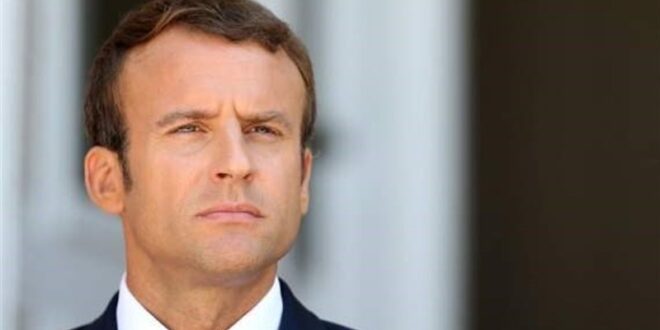In 2017, a few months after being elected as France’s President, Emmanuel Macron called for a “sovereign Europe”, that entailed a common defence force alongside the creation of a European strategic culture, in a speech at the Sorbonne University in Paris. On 25 April this year, just ahead of the European elections in June, Macron returned to the Sorbonne touching upon similar themes in a wide-ranging speech, but this time with a greater sense of urgency and solemnness.
In a fundamentally altered global context with multiple economic and geopolitical challenges confronting the European Union (EU), the speech stood out for Macron’s apocalyptic warning, “Europe is mortal; it can die. It only depends on our choices”. Echoing the familiar triad of dependencies that underpinned European prosperity so far, Macron reiterated, “The era of basing our production in China, of delegating our defence to the US, and of getting our energy from Russia is over.”
Key takeaways from Macron’s speech
Russia’s war on Ukraine has lent greater credence to Macron’s ideas on defence, and his fervent push for European strategic autonomy and self-reliance in security. Amongst the most important themes in his two-hour long speech was the core subject of defence—central to Europe in the context of wavering United States (US) support and the daunting prospect of a Donald Trump return to the White House. Macron emphasised Europe’s need to bolster its military preparedness by establishing a credible defence strategy, which entails building “a European defence initiative” and strengthening its anti-missile system. Adopting a “Europe First” approach, the French President asserted his preference for local European manufacturers in purchasing military equipment and boosting the bloc’s defence industry.
Echoing his controversial remarks on Taiwan during his trip to Beijing last year, Macron once again vowed to script a third path between the US-China great power rivalry. He claimed that Europe would never serve as a vassal for the US and that Europe was not a US priority despite the strength of the transatlantic alliance.
On trade, Macron accused the US and China of not respecting global rules in the context of increasing subsidies used by the two powers to boost local industry. In October 2023, the EU launched an anti-subsidies probe into Chinese production of electric vehicles that it is now considering widening to other sectors such as solar panels. On the other hand, European firms fear the impact of the US Inflation Reduction Act that provides subsidies to American businesses to accelerate the green transition. In response, Macron called on EU trade policy to undergo a revision, including supporting domestic firms in key sectors such as green energy and tech through greater public investments, while reducing burdensome EU regulation.
Other themes covered in Macron’s speech included French favourites such as nuclear power, in addition to warnings about Europe being “encircled” by regional powers such as Russia and Iran, and critiques of the European Central Bank’s lack of focus on growth. Macron outlined five critical sectors where the EU should become a “world leader” by 2030, including AI, space, biotech, green energy, and quantum computing. He pitched ways to boost EU resources through the EU’s carbon tax and also supported new joint European debt acquisition similar to the EU’s €800 billion pandemic recovery fund.
A much-needed vision
Since 2017, Macron’s domestic position has significantly weakened through the loss of his parliamentary majority, which has rendered the passing of important legislation difficult, as was evident in the recently passed immigration law, and long-drawn protests against his pension reforms. Recent polls indicate that less than a third of French voters hold a favourable view of their President. At the EU level too, Opposition leader Marine Le Penn’s far-right Rassemblement National Party has emerged as a frontrunner, challengingMacron’s centrist Renew group, the third-largest bloc in the current European Parliament.
Moreover, the French President has often been accused of grandstanding, while offering less clarity on details and concrete solutions. Some see the speech as a means to cement his political legacy, given that he is ineligible to run for president again in 2027 according to French laws. In addition, French policy trends such as providing less aid to Ukraine compared to other European nations, accommodating less Ukrainian refugees, and not yet fulfilling the 2 percent of GDP NATO spending threshold point to contradictions with Macron’s bold rhetoric. Challenges stand in the path to greater European autonomy, not least in the form of the Eastern flank’s comfort with US strategic dependence, and Franco-German and other divergences within the Union.
And yet, given geopolitical events that have transpired since Macron’s last speech in 2017, the President’s ideas stand vindicated particularly in the areas of security and defence. Irrespective of caveats, Macron’s vision could be the revolution Europe needs to shake itself out of its complacent bubble, unless it wants to continue moving forward with the security of its 450 million citizens remaining at the behest of American voters.
 Eurasia Press & News
Eurasia Press & News



